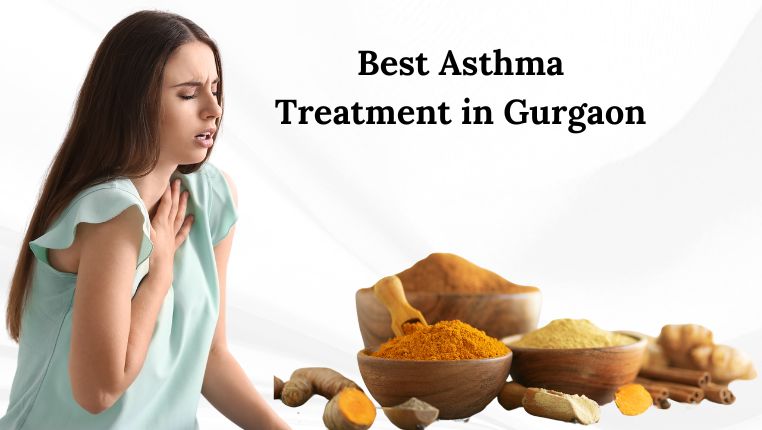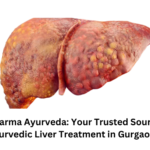
Are you tired of struggling with asthma symptoms and looking for a natural approach to manage this condition? Look no further! Join us on a journey through the ancient wisdom of Ayurveda with insights from a Vedic Karma Ayurvedic doctor in Gurgaon. Discover how this holistic system can offer you the best asthma treatment, tailored to your individual needs. Say goodbye to constant wheezing and shortness of breath as we delve into the world of Ayurvedic remedies for asthma.
Understanding Asthma in Ayurveda
Asthma, known as “Swas Rog” in Ayurveda, is a respiratory condition that affects the airways. According to Ayurvedic principles, asthma is caused by an imbalance of the doshas—Vata, Pitta, and Kapha—in the body. When these doshas are out of harmony, it can lead to inflammation and constriction of the air passages, resulting in symptoms like wheezing and coughing.
In Ayurveda, asthma is classified into different types based on the predominant dosha involved. Vata-type asthma is characterized by dry cough and difficulty breathing. Pitta-type asthma manifests with yellow phlegm and inflammation in the lungs. Kapha-type asthma presents with excessive mucus production and congestion in the chest.
Ayurvedic treatment for asthma focuses on restoring balance to the doshas through diet, lifestyle modifications, herbal remedies, and therapies like Panchakarma. By addressing the root cause of imbalances in the body’s energy system, Ayurveda offers a holistic approach to managing asthma effectively.
What Are The Early Signs And Symptoms Of Asthma
Asthma, a chronic respiratory condition, manifests in various early signs and symptoms that can vary from person to person.
One common symptom is recurrent episodes of wheezing, which are characterized by a whistling sound while breathing. Shortness of breath or chest tightness may also occur, especially during physical activity or at night.
Persistent coughing, particularly at night or early morning, is another indicator of asthma. Coughing fits may worsen with exposure to allergens like dust mites or pet dander.
Some individuals experience frequent chest infections or bronchitis as an early sign of underlying asthma. These respiratory infections can lead to increased inflammation and sensitivity in the airways.
Recognizing these early warning signs is crucial for timely diagnosis and effective management ofasthma treatment in gurgaon
asthma to improve quality of life and prevent severe complications. If you notice any of these symptoms persistently, consult a healthcare professional for proper evaluation and guidance on managing your condition effectively.
What Are The Main Causes Of Asthma
Asthma, a common respiratory condition, can be triggered by various factors. One of the main causes of asthma is genetic predisposition; if your family has a history of asthma or allergies, you may be more likely to develop it. Environmental factors such as air pollution, allergens like pollen or dust mites, and exposure to tobacco smoke can also contribute to asthma development.
Respiratory infections in early childhood can increase the risk of developing asthma later in life. Additionally, certain occupational exposures to chemicals or fumes can lead to the onset of asthma symptoms. Emotional factors like stress and anxiety might exacerbate asthma symptoms in some individuals.
Understanding these potential triggers is crucial in managing and preventing asthma attacks. By identifying and addressing these underlying causes, individuals can better control their condition and improve their quality of life.
Therapies and treatments recommended by a Vedic Karma Ayurvedic doctor
When it comes to managing asthma, a Vedic Karma Ayurvedic doctor in Gurgaon may recommend various therapies and treatments tailored to your specific needs. These treatments are aimed at balancing the doshas in the body to alleviate symptoms and improve overall respiratory health.
One common therapy used is Panchakarma, which involves detoxifying the body through methods like oil massages, herbal steam therapy, and cleansing techniques. This helps remove toxins from the system and restore balance.
Additionally, dietary changes and lifestyle modifications may be suggested by the Ayurvedic doctor. Certain foods can aggravate asthma symptoms, so focusing on a diet that supports respiratory health is essential. Incorporating herbs like turmeric, ginger, and licorice into your meals can also provide relief.
Breathing exercises such as Pranayama are often recommended to strengthen lung function and reduce stress levels. Yoga postures that focus on opening up the chest area can also help improve breathing capacity for those with asthma.
By combining these holistic approaches with herbal remedies and personalized treatment plans, a Vedic Karma Ayurvedic doctor aims to address the root cause of asthma while promoting overall well-being.
Herbal remedies for asthma
When it comes to managing asthma through Ayurveda, herbal remedies play a significant role in alleviating symptoms and improving respiratory health.
One of the most commonly used herbs for asthma is Licorice root. This herb has anti-inflammatory properties that help reduce inflammation in the airways, making breathing easier for asthma patients.
Another powerful herb is Turmeric, known for its antioxidant and anti-inflammatory effects. Curcumin, found in turmeric, can help decrease airway inflammation and improve lung function.
Adhatoda Vasica, commonly known as Malabar nut or Vasa, is also beneficial for asthma sufferers due to its bronchodilator properties which help widen the air passages.
Boswellia serrata or Indian frankincense can aid in reducing bronchial inflammation and promoting easier breathing by inhibiting leukotrienes production.
These herbal remedies offer a natural and holistic approach to managing asthma symptoms alongside other treatments recommended by Ayurvedic doctors.




